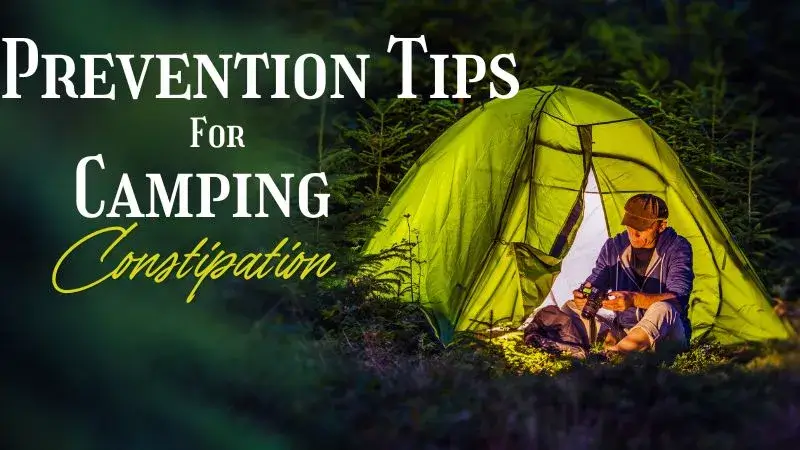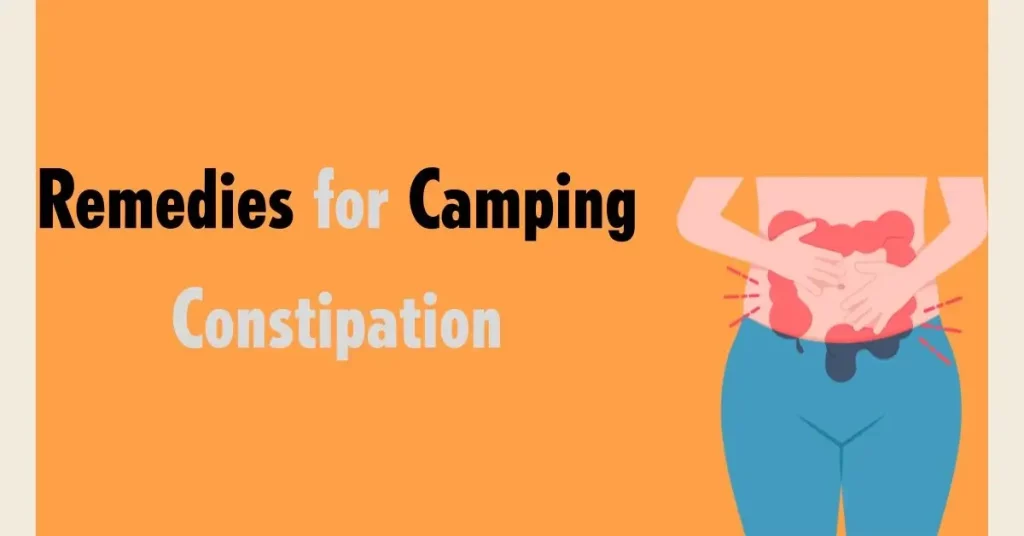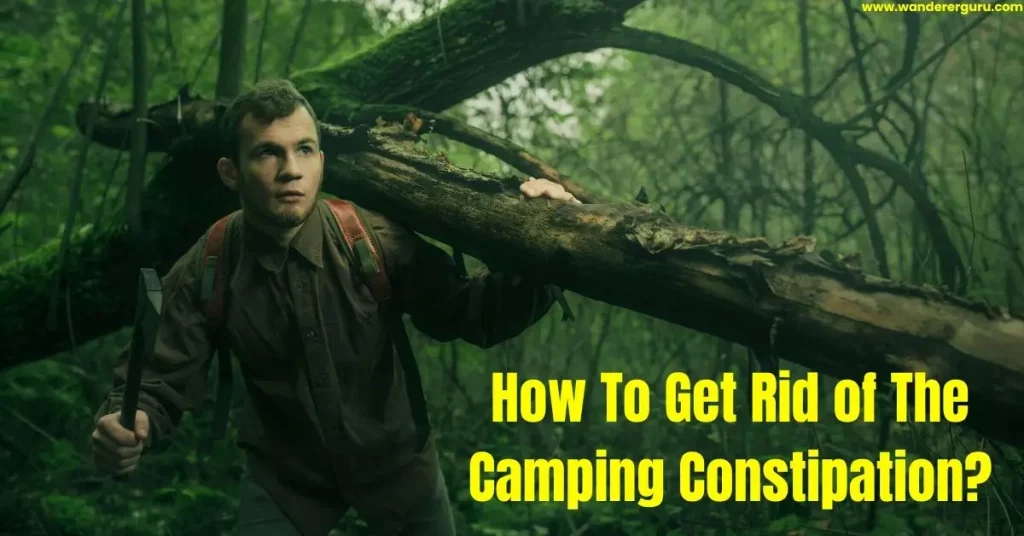Are you excited about your upcoming camping trip but worried about the potential discomfort of constipation? Camping can disrupt your routine and expose you to unfamiliar surroundings. That affects your digestive system. However, with simple tips and tricks, you can prevent camping constipation and enjoy your outdoor adventure to the fullest.
In this article, we’ll explore the causes of camping constipation. We will also provide practical solutions to keep your digestive system in check. So, let’s dive in!
What is Camping Constipation?
Camping constipation refers to the difficulty or infrequency of bowel movements experienced while camping. It can be caused by various factors, such as changes in diet, limited access to proper restroom facilities, dehydration, lack of physical activity, and altered daily routines. This condition can affect individuals of all ages and may lead to discomfort, bloating, and a general feeling of unease.
Causes of Camping Constipation
Camping constipation can caused by a lot of different things. Let’s discuss some of the main causes of constipation below:
Dietary Changes and Lack of Fiber
When camping, our usual dietary habits often undergo a shift. We tend to consume more processed foods, such as canned goods and snacks, typically low in fibre. Additionally, the limited availability of fresh fruits and vegetables can contribute to a lack of dietary fibre, leading to constipation.
Dehydration
Staying hydrated is crucial for maintaining regular bowel movements. However, in the great outdoors, it’s easy to become dehydrated, especially if you’re engaging in strenuous activities or spending time under the sun. Dehydration can result in hardened stools and difficulty passing them.
Limited Restroom Facilities
Let’s face it; camping restrooms are sometimes the most comfortable or private places. Some campgrounds may have basic pit toilets, while others might lack facilities. This can lead to an unwillingness to use the restroom. That causes constipation due to holding in bowel movements.
Lack of Physical Activity
Camping trips often involve relaxing and enjoying the tranquillity of nature. However, a decrease in physical activity can slow down the digestive system, making it harder to have regular bowel movements.
Bonus:
Prevention Tips for Camping Constipation

Preventing constipation while camping is essential to ensure a comfortable and enjoyable outdoor experience. Here are some tips to help prevent camping constipation:
Increase Fiber Intake
To prevent camping constipation, it’s essential to maintain a fibre-rich diet. Pack high-fibre foods such as whole grains, fresh fruits, vegetables, and nuts. These will promote healthy digestion and prevent constipation.
Stay Hydrated
Hydration is vital to keeping your digestive system functioning smoothly. Always carry a refillable water bottle and make it a habit to drink water regularly throughout the day. Avoid excessive consumption of sugary drinks or alcohol, as they can contribute to dehydration.
Plan Your Meals Wisely
While camping, try to incorporate foods known to have a natural laxative effect, such as prunes, beans, and whole grains. These foods can help regulate bowel movements and prevent constipation.
Maintain Physical Activity
Even though camping often involves relaxation, staying physically active is essential. Use hiking, swimming, or cycling to stimulate your digestive system and promote regular bowel movements.
Remedies for Camping Constipation

Below are the some remedies to prevent constipation while camping and enjoy your trip:
Fibre Supplements
If your camping diet lacks fibre, consider bringing along fibre supplements. These can help regulate your bowel movements and prevent constipation. However, consulting a healthcare professional before starting new supplements is essential.
Over-the-Counter Laxatives
In some cases, over-the-counter laxatives may be necessary to relieve constipation. These should be used sparingly and as a last resort, as long-term reliance on laxatives can adversely affect your digestive system.
Regular Toilet Breaks
Make it a habit to visit the restroom regularly, even if you don’t want to go. Establishing a routine can help regulate your bowel movements and prevent constipation.
Gentle Abdominal Massage
Performing a gentle abdominal massage can stimulate bowel movements. Use your fingertips to apply gentle pressure in a circular motion around your belly button. This can help promote digestion and relieve constipation.
Relaxation Techniques
Stress and anxiety can contribute to constipation. Engage in relaxation techniques such as deep breathing, yoga, or meditation to promote a calm and relaxed mind. This can positively impact your digestive system. For more ideas, visit my Pinterest.
Conclusion
Camping constipation can damage outdoor adventures but can be effectively prevented and managed with the right strategies. You can ensure smooth and regular bowel movements during your camping trips by incorporating a fibre-rich diet, staying hydrated, maintaining physical activity, and following the provided remedies. Remember to listen to your body, relax, and enjoy the wonders of nature without the discomfort of constipation.
FAQs
Q.1 Is camping constipation a common issue?
Ans: Yes, camping constipation is a common issue experienced by many campers due to various factors such as dietary changes, limited access to restrooms, and decreased physical activity.
Q.2 Can stress and anxiety contribute to camping constipation?
Ans: Stress and anxiety can impact your digestive system and contribute to constipation. Engaging in relaxation techniques can help alleviate stress and promote healthy bowel movements.
Q.3 How long does camping constipation typically last?
Ans: The duration of camping constipation can vary depending on the individual and the severity of the condition. However, with proper preventive measures and remedies, it can usually be resolved within a few days.
Bonus:

